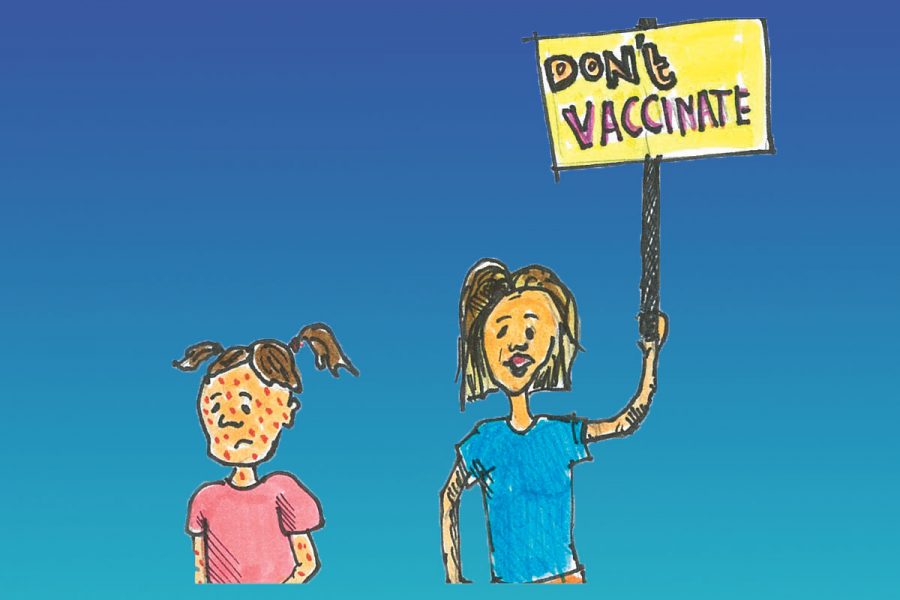Misinformation Is a Disease – and It’s Highly Contagious
Vaccinations have been widely demonized since a deeply flawed study claimed they caused autism. Out of fear, children are being vaccinated far less frequently than they have been in the past. This drop-off endangers not just those who choose to reject vaccines, however. Anti-vaccination advocates jeopardize the health and well-being of all their fellow citizens. By not requiring all citizens to be vaccinated, our government is neglecting the safety of our population.
The primary reason given for refusing to vaccinate one’s children has been concern regarding the side effects of their use, the most common of which is the worry that vaccines cause autism. This delusion has circulated for many years, despite the fact that multiple scientific studies have found no link whatsoever. The Journal of Pediatrics, for example, conducted a study in 2013 that found no evidence for a causal relationship between vaccines and autism.
Despite countless sources proving otherwise, many accuse thimerosal, an ingredient in vaccines, to be the supposed culprit. This misconception is perhaps understandable, because thimerosal is a mercury-based preservative. Although mercury can, in fact, cause neurological damage, thimerosal does not contain a harmful dose of mercury and is easily disposed of by the human body. Furthermore, vaccines today no longer contain thimerosal and haven’t since 2001.
To claim that autism is so terrible that it is worth returning to the days when millions of people died every year without vaccines is offensive to those living with autism. In addition, rising rates of autism are likely a result of multiple factors – including greater awareness leading to more diagnoses, as well as an actual increase in cases due to well-documented causes (such as older men having more children).
The protections that vaccines provide are invaluable to the degree that they should be used regardless of side effects. Vaccines prevent fatal diseases from afflicting millions of people and have all but eradicated diseases such as polio and smallpox. A report released in 2009 by the National Institute of Allergy and Infectious Diseases noted that, between the time vaccines started to be mass produced and 2009, there was a >99% decrease in cases of measles, diphtheria, smallpox, rubella, influenza, and polio.
To undo such drastic improvements is abhorrent. The benefits of vaccines clearly rival nearly all other medical advancements in history.
The implications of a society without vaccines are, unfortunately no longer theoretical. According to the Centers for Disease Control and Prevention, falling vaccination rates have led to outbreaks of measles in New York, Illinois, Texas, Minnesota, and Washington. These cases have shown us that unvaccinated citizens pose a threat to all of society.
Luckily, this threat can be eliminated by mass immunization. As more people are vaccinated, the likelihood that a future outbreak will occur decreases. It is especially important to protect people who cannot get vaccinated, such as young children, the elderly, and those with weakened immune systems. When vaccination rates decrease, these groups are often hit the hardest.
Vaccinations have been deeply integrated into modern public health, and to neglect them would be folly. If our lawmakers refuse to write legislation mandating the obligatory vaccination of all persons, the health of American citizens will fall into a primitive state once thought to be long gone. Such a measure may seam overbearing, but it is necessary, given the stakes. The government’s priority should be to protect the people, in all matters of life, including public health, in which vaccines play a critical role.













